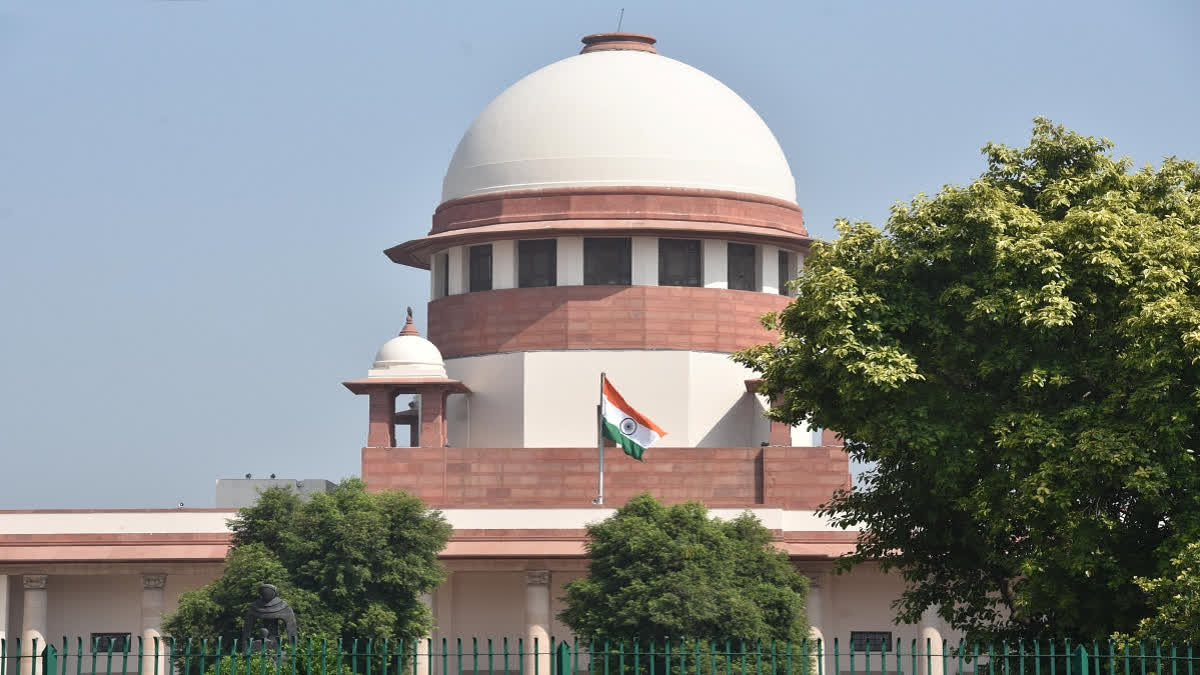New Delhi: Supreme Court Judge Justice B R Gavai on Thursday said at one stage, the atrocious caste discrimination in India had even surpassed the racial discrimination and the slave trade, and stressed that while India was struggling to gain freedom from the colonial rulers, the country also witnessed a parallel movement for eradication of these inequalities.
Justice Gavai was part of a seven-judge bench, led by Chief Justice of India D Y Chandrachud, which, in a path-breaking judgment, on Thursday held that sub-classification of Scheduled Caste and Scheduled Tribes is permissible to provide preferential treatment to the disadvantaged groups among them.
In observations made in his separate judgment, Justice Gavai, who is from the Dalit community, said for centuries, the people belonging to certain castes were inhumanly treated by the upper classes in society. "They have been treated worse than animals... At one stage, the atrocious caste discrimination in India had even surpassed the racial discrimination and the slave trade, premised on the colour of skin, in other parts of the world," he said.
Justice Gavai said people belonging to certain castes were not permitted to be touched by the upper classes and in some areas, even the upper classes did not permit the shadow of such people to fall on them.
“As such, while walking, they were required to maintain a distance so that their shadow does not pollute the upper caste. In some areas, they were required to tie a broom to their back so that they clean the path after they travel from the same," said Justice Gavai,
He said these people were also denied water from the common places and in the villages where the water was drawn from the rivers, they were required to draw water from the downstream so that the water taken by the people from higher classes is not polluted. “They were also denied the right to education. In schools, either they were required to sit separately or take their lessons standing outside their classroom”, he added.
Justice Gavai said while India was struggling to gain freedom from the colonial rulers, the country also witnessed a parallel movement for eradication of these inequalities and the upliftment of the classes which were being treated inhumanely.
He said it would be apposite to refer to the statement by Dr. B.R. Ambedkar in ‘Evidence before the Southborough Committee’ (1919), where he gave several examples of the unjust treatment meted out to the untouchables by the oppressor castes.
He said Dr. Ambedkar in order to fight against the inhuman treatment of untouchables, who were not even allowed to draw water from the common place, held an agitation at Mahad known as “Mahad Satyagraha” on 20th March 1927 so that the untouchables could be permitted to draw water from a public tank at Mahad. He said Dr Ambedkar was of the view that the movement for removal of untouchability is in true sense a movement for nation-building and fraternity.
He said it is a matter of great coincidence that Dr. Ambedkar, who fought for the cause of social equality and eradication of inhuman treatment for generations, got an opportunity to work as the Chief Architect of the Constitution of India.
Read More
Big Supreme Court Verdict: Sub-classification In Scheduled Caste, Tribes For Reservation Permissible



